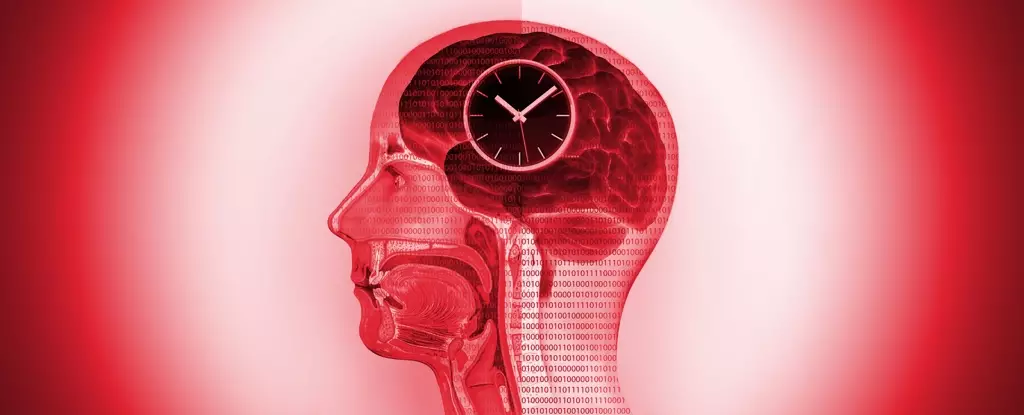Obesity has burgeoned into a global epidemic, affecting over a billion individuals and, consequently, increasing the rates of serious health conditions such as diabetes, heart disease, and certain cancers. This crisis necessitates urgent attention and innovative solutions. Recent research from Chinese scientists, focusing on intermittent calorie restriction (IER), shines a light on a promising path toward understanding and potentially reversing obesity’s grip on society. This article delves into the nuances of the study while emphasizing the interconnectedness of the gut microbiome and brain in shaping our relationship with food.
The Breakthrough: Intermittent Calorie Restriction
The investigation conducted on 25 obese volunteers over 62 days reveals the positive effects of an intermittent energy restriction regime. Participants underwent a structured approach, alternating between periods of caloric intake and fasting, leading to an impressive average weight loss of 7.6 kilograms (16.8 pounds). However, the weight loss was merely the surface; beneath it lies a complex transformation within the participant’s biological systems that may redefine obesity management strategies.
Health researcher Qiang Zeng articulates the significance of the findings, declaring that IER alters the human brain-gut-microbiome axis. This statement underscores the potential for utilizing dietary interventions not merely for weight loss, but for fostering an entirely new understanding of how our brains and guts communicate. The dynamic changes in gut microbiota and brain activity indicate a liaison worth exploring further.
The Enigmatic Brain-Gut Relationship
While this study provides substantial evidence for changes in gut bacteria and brain function, it also raises pivotal questions. What precisely drives these changes? Is the gut influencing the brain’s behavior toward food, or do neuronal signals from the brain shape gut microbiome composition? As Xiaoning Wang notes, the interaction is multi-directional, characterized by a complex exchange where gut microbes produce neurotransmitters that influence brain processes, while simultaneously, the brain regulates eating behaviors through signals that stem from neural circuits.
Utilizing advanced methodologies such as functional magnetic resonance imaging (fMRI), researchers observed alterations in regions of the brain associated with appetite control and addiction. Notably, changes in the inferior frontal orbital gyrus, an area linked to executive functions like willpower, illustrated the intricate ties between cognitive control and our impulse to consume food. It’s evident that understanding this relationship better could pave the way for targeted obesity treatments.
The Microbiome: A Key Player in Appetite Regulation
Delving deeper into the findings, two bacteria species—Coprococcus comes and Eubacterium hallii—emerged as significant players. Their negative correlation with brain activity suggests that gut microbiota could be intricately linked to our psychological resilience against cravings. This interplay indicates that fostering a healthier gut microbiome might enhance our ability to resist unhealthy eating patterns.
Therefore, it becomes abundantly clear that the health of the gut microbiota is crucial in not just digesting food but in modulating behaviors that are foundational for maintaining a healthy weight. The research ignites curiosity about dietary interventions capable of ameliorating gut health as a viable strategy to combat obesity.
The Implications for Public Health Strategies
The implications of this research extend beyond theoretical musings into the realm of public health action. Understanding how the microbiome and brain communicate offers a new avenue for addressing obesity through tailored dietary patterns. Not only could IER play a role in reducing weight, but it also fosters an ecosystem within the gut that could bolster cognitive control over eating behaviors.
As the scientists encourage further exploration into this two-way dialogue, particularly regarding the mechanisms at play during weight loss, it becomes imperative for healthcare professionals to integrate these findings into obesity management plans. Personalized nutrition that emphasizes microbiome health could represent a groundbreaking strategy in curbing the obesity crisis.
In the pursuit of innovative solutions to this pressing issue, one thing remains undeniable: the road to a healthier society hinges upon an increasingly sophisticated understanding of the intricate connections between our gut and brain. The exploration of this relationship opens a treasure trove of possibilities for future research and clinical applications, positioning us closer to resolving the obesity epidemic that has taken hold in contemporary society.

